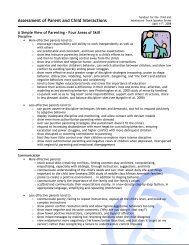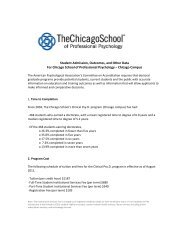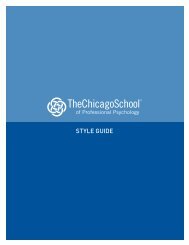Center for Academic Excellence Writing Assessment ... - eGo Main
Center for Academic Excellence Writing Assessment ... - eGo Main
Center for Academic Excellence Writing Assessment ... - eGo Main
You also want an ePaper? Increase the reach of your titles
YUMPU automatically turns print PDFs into web optimized ePapers that Google loves.
The Atlantic Online | June 2009 | What Makes Us Happy? | Joshua Wolf Shenk<br />
12/31/09 10:15 PM<br />
As a child, you played all the sports, were good to your two sisters, and loved church. You and some other boys from<br />
Sunday school—it met at your house—used to study the families in your neighborhood, choosing one every year to present<br />
with Christmas baskets. When the garbageman’s wife found out you had polio, she cried. But you recovered fully, that<br />
was your way. “I could discover no problems of importance,” the study’s social worker concluded after seeing your family.<br />
“The atmosphere of the home is one of happiness and harmony.”<br />
At Harvard, you continued to shine. “Perhaps more than any other boy who has been in the Grant Study,” the staff noted<br />
about you, “the following participant exemplifies the qualities of a superior personality: stability, intelligence, good<br />
judgment, health, high purpose, and ideals.” Basically, they were in a swoon. They described you as especially likely to<br />
achieve “both external and internal satisfactions.” And you seemed well on your way. After a stint in the Air Force—“the<br />
whole thing was like a game,” you said—you studied <strong>for</strong> work in a helping profession. “Our lives are like the talents in the<br />
parable of the three stewards,” you wrote. “It is something that has been given to us <strong>for</strong> the time being and we have the<br />
opportunity and privilege of doing our best with this precious gift.”<br />
And then what happened? You married, and took a posting overseas. You started smoking and drinking. In 1951—you<br />
were 31—you wrote, “I think the most important element that has emerged in my own psychic picture is a fuller<br />
realization of my own hostilities. In early years I used to pride myself on not having any. This was probably because they<br />
were too deeply buried and I unwilling and afraid to face them.” By your mid-30s, you had basically dropped out of sight.<br />
You stopped returning questionnaires. “Please, please … let us hear from you,” Dr. Vaillant wrote you in 1967. You wrote<br />
to say you’d come see him in Cambridge, and that you’d return the last survey, but the next thing the study heard of you,<br />
you had died of a sudden disease.<br />
Dr. Vaillant tracked down your therapist. You seemed unable to grow up, the therapist said. You had an affair with a girl<br />
he considered psychotic. You looked steadily more disheveled. You had come to see your father as overpowering and<br />
distant, your mother as overbearing. She made you feel like a black sheep in your illustrious family. Your parents had<br />
split up, it turns out.<br />
In your last days, you “could not settle down,” a friend told Dr. Vaillant. You “just sort of wandered,” sometimes offering<br />
ad hoc therapy groups, often sitting in peace protests. You broke out spontaneously into Greek and Latin poetry. You lived<br />
on a houseboat. You smoked dope. But you still had a beautiful sense of humor. “One of the most perplexing and charming<br />
people I have ever met in my life,” your friend said. Your obituary made you sound like a hell of a man—a war hero, a<br />
peace activist, a baseball fan.<br />
In all Vaillant’s literature—and, by agreement, in this essay, too—the Grant Study men remain anonymous. (Even the<br />
numbers on the case studies have been changed.) A handful have publicly identified themselves—including Ben Bradlee, the<br />
longtime editor of The Washington Post, who opened his memoir, A Good Life, with his first trip to the study office. John F.<br />
Kennedy was a Grant Study man, too, though his files were long ago withdrawn from the study office and sealed until 2040.<br />
Ironically, it was the notation of that seal in the archive that allowed me to confirm JFK’s involvement, which has not been<br />
recognized publicly be<strong>for</strong>e now.<br />
Of course, Kennedy—the heir to ruthless, ambitious privilege; the philanderer of “Camelot”; the paragon of casual wit and<br />
physical vigor who, backstage, suffered from debilitating illness—is no one’s idea of “normal.” And that’s the point. The<br />
http://www.theatlantic.com/doc/print/200906/happiness<br />
Page 5 of 20





